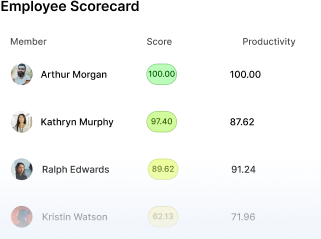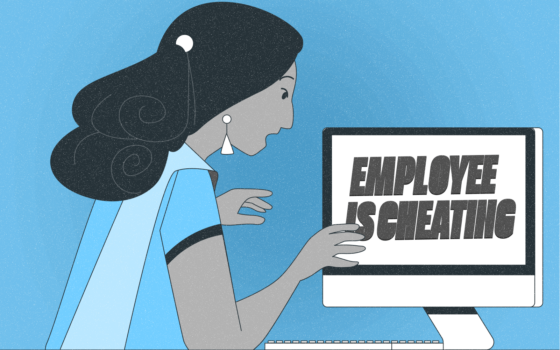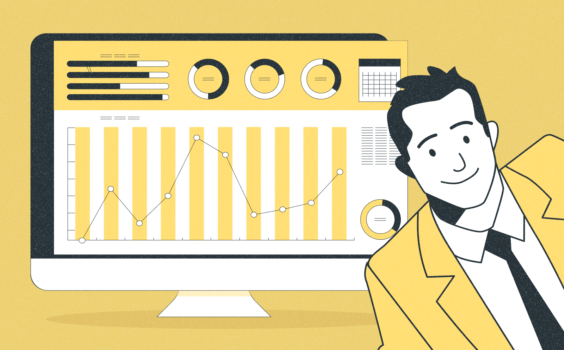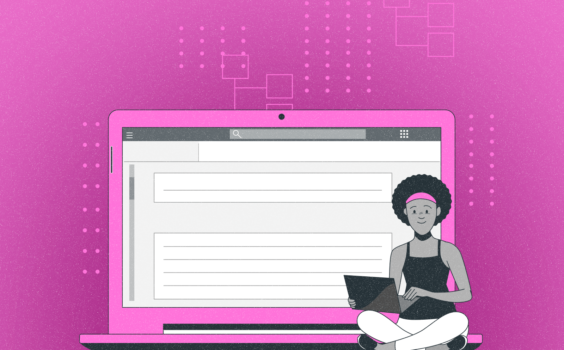5 Essential Functions of Human Resource Management
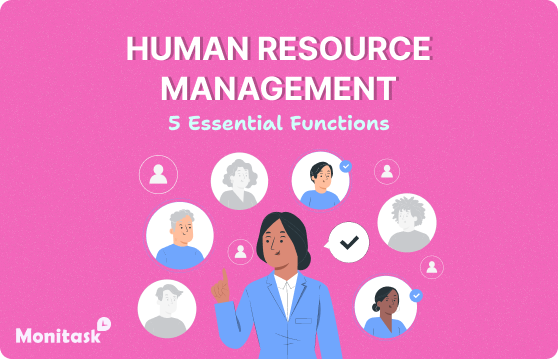
Human Resource Management (HRM) is a strategic approach to managing people in an organization. It involves overseeing various aspects of employee-related functions, from hiring and training to maintaining employee welfare and ensuring legal compliance.
HRM plays a crucial role in fostering a productive and positive work environment, which ultimately contributes to the success of a business.
In the following section, you will find five key functions of human resource management.
1. Recruitment and Staffing
Recruitment and staffing are essential HR functions that ensure an organization hires the right talent to drive success. The process starts with job analysis, where HR defines role requirements and skills. Next, a recruitment strategy is developed, using job boards, social media, networking, and internal referrals to source candidates.
Once candidates are identified, HR reviews applications, conducts interviews, and administers assessments. Behavioral interviews help evaluate problem-solving abilities and cultural fit. After selecting the best candidate, HR negotiates offers and begins onboarding, providing orientation and training to ensure a smooth transition.
Staffing involves workforce planning, internal promotions, and talent management to align employees with business needs. Companies may also use temporary or contract hiring for short-term projects.
Key Steps in Recruitment and Staffing:
- Job Analysis & Role Definition – Identify required skills and responsibilities.
- Candidate Sourcing – Use job portals, social media, and referrals.
- Screening & Selection – Conduct interviews, tests, and evaluations.
- Hiring & Onboarding – Finalize offers, provide orientation, and integrate new hires.
- Workforce Planning – Manage employee roles, promotions, and talent retention.
A strong recruitment and staffing strategy reduces turnover, improves productivity, and supports long-term business growth.
2. Training and Development
HRM is responsible for the ongoing development of employees through training programs. These initiatives are designed to enhance the skills, knowledge, and abilities of employees, ultimately benefiting both the individual and the organization. Key elements include:
- Induction training: Teaching new employees about the company’s mission, vision, policies, and processes.
- Skills training: Providing specific training for roles or tasks, such as software proficiency, leadership skills, or technical expertise.
- Career development: Offering resources for career growth, including leadership development programs, mentorship, or higher education support.
- Continuous learning: Encouraging employees to participate in workshops, seminars, or online courses to stay updated with industry trends.
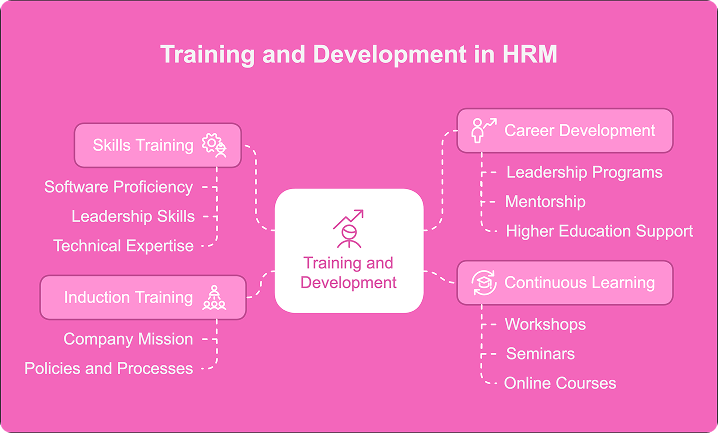
Investing in training and development not only enhances employee performance but also boosts job satisfaction and retention rates.
3. Employee Relations
Employee relations focus on maintaining a positive work environment where employees feel valued, engaged, and motivated.
HR professionals handle conflict resolution by mediating disagreements between employees or between staff and management. They establish clear policies for handling grievances and ensure fair treatment through structured procedures. Regular employee feedback through surveys and one-on-one meetings helps identify workplace concerns early and implement necessary improvements.
Another key aspect of employee relations is engagement initiatives, such as recognition programs, team-building activities, and wellness support. HR encourages collaboration by organizing social events and fostering an inclusive culture where all employees feel respected. Fair disciplinary policies also contribute to a positive work atmosphere, ensuring accountability while maintaining trust between employees and leadership.
Key Aspects of Employee Relations:
- Conflict Resolution – Mediate disputes and ensure fair grievance handling.
- Employee Engagement – Conduct surveys, recognition programs, and team-building activities.
- Open Communication – Foster transparency through feedback and management accessibility.
- Workplace Culture – Promote inclusivity, diversity, and mutual respect.
- Fair Policies – Implement disciplinary actions consistently and equitably.
Effective employee relations improve retention, boost morale, and create a workplace where employees thrive.
Maximize productivity of your business
Track employee productivity and simplify work with them
4. Compensation and Benefits
Managing compensation and benefits is another crucial function of HRM. This involves ensuring that employees are fairly compensated for their work and have access to competitive benefits packages. Key responsibilities include:
- Salary management: Developing and implementing competitive salary structures that align with industry standards and the company’s budget.
- Benefits administration: Overseeing health insurance, retirement plans, paid time off, bonuses, and other employee perks.
- Incentive programs: Creating performance-based incentives, such as bonuses, profit-sharing, or stock options, to motivate employees and reward high performance.
- Equity and fairness: Ensuring that compensation and benefits are distributed fairly across the organization, helping to prevent pay disparity and discrimination.
A well-structured compensation and benefits system is essential for attracting and retaining top talent and ensuring that employees feel fairly rewarded for their contributions.
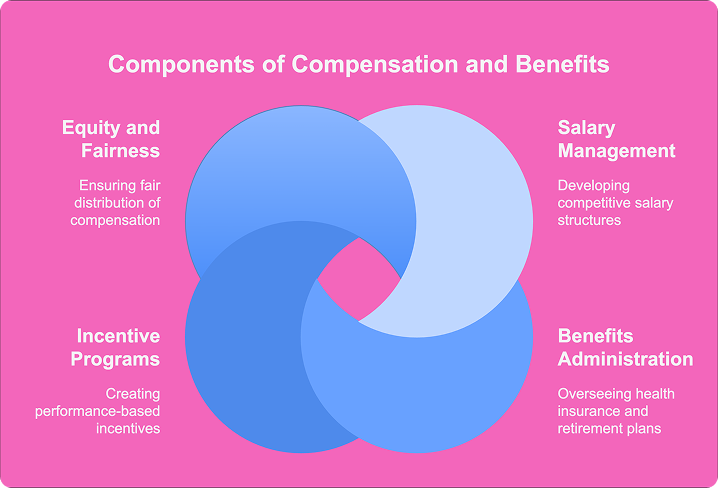
5. Compliance with Labor Laws
Ensuring compliance with labor laws is a critical HR function that protects both employees and the organization from legal risks. HR must stay updated on local, state, and federal regulations to ensure fair treatment, workplace safety, and proper compensation. Non-compliance can lead to lawsuits, financial penalties, and reputational damage.
HR is also responsible for maintaining legally compliant employment contracts and record-keeping, ensuring transparency in hiring, promotions, and terminations. Training programs educate employees and management on labor rights, ethical standards, and corporate responsibilities, reducing legal risks and fostering a culture of compliance.
Key Aspects of Labor Law Compliance:
- Wage & Hour Laws – Ensure fair pay, overtime, and benefits.
- Workplace Safety – Implement safety protocols and training.
- Anti-Discrimination Policies – Enforce equal hiring and fair treatment.
- Employment Contracts – Maintain legally compliant agreements and records.
- Regulatory Training – Educate employees on labor laws and workplace rights.
A strong compliance strategy helps companies avoid legal issues, build employee trust, and create a fair and ethical work environment.
Conclusion
Human Resource Management encompasses a range of essential functions that contribute to the smooth operation and success of any organization.
From recruiting and developing talent to maintaining positive employee relations and ensuring legal compliance, HRM is at the heart of a thriving workplace.
By effectively managing these functions, organizations can build a strong, motivated workforce that drives business success and fosters a positive organizational culture.
– The Monitask Team
Frequently Asked Questions
How does HR handle employee training?
HR provides structured training programs, workshops, e-learning courses, and mentorship opportunities to enhance employees’ skills and knowledge.
Why is recruitment important in HRM?
Effective recruitment helps an organization hire skilled employees who contribute to productivity, innovation, and business success.
How does HR ensure fair compensation?
HR conducts market research, follows industry benchmarks, and structures salary packages with benefits to ensure competitive and fair pay.
